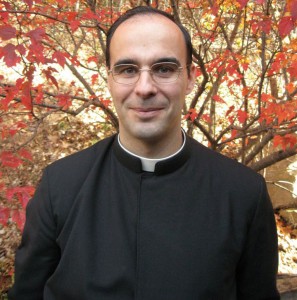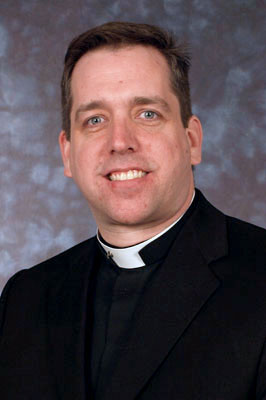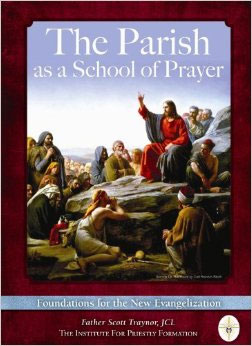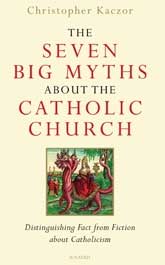Episode 5 The Daily Prayer of Discernment: The Ignatian Wisdom of the Examen Prayer with Fr. Timothy 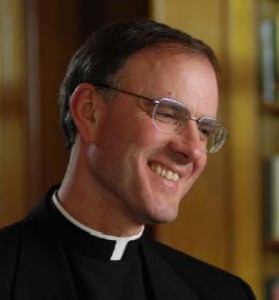 Gallagher. Fr. Gallagher continues to discuss the third step – REVIEW – which is where the “The Discernment of Spirits” intersects with “The Examen”. Â Then we approach the fourth step – FORGIVENESS – which is what all the actions in the prayer are leading to.
Gallagher. Fr. Gallagher continues to discuss the third step – REVIEW – which is where the “The Discernment of Spirits” intersects with “The Examen”. Â Then we approach the fourth step – FORGIVENESS – which is what all the actions in the prayer are leading to.
[powerpress]
As outlined from the Spiritual Exercises of St. Ignatius of Loyola (translated from the autograph by Fr. E. Mullan, S.J. Â 1909Â in the public domain)
METHOD FOR MAKING THE GENERAL EXAMEN
It contains in it five Points. First Point. The first Point is to give thanks to God our Lord for the benefits received. Second Point. The second, to ask grace to know our sins and cast them out. Third Point. The third, to ask account of our soul from the hour that we rose up to the present Examen, hour by hour, or period by period: and first as to thoughts, and then as to words, and then as to acts, in the same order as was mentioned in the Particular Examen. Fourth Point. The fourth, to ask pardon of God our Lord for the faults. Fifth Point. The fifth, to purpose amendment with His grace. OUR FATHER.
Father Timothy M. Gallagher, O.M.V., was ordained in 1979 as a member of the Oblates of the Virgin Mary, a religious community dedicated to retreats and spiritual formation according to the Spiritual Exercises of St. Ignatius. Â Fr. Gallagher is featured on the EWTN series “Living the Discerning Life: Â The Spiritual Teachings of St. Ignatius of Loyola”. Â For more information on books and audio available for purchase from Fr. Timothy Gallagher check out his website: www.frtimothygallagher.org
For the other episodes in this series check out Fr. Timothy Gallagher’s “Discerning Hearts†page
Tags: discernment, Timothy Gallagher
This entry was posted on Monday, April 21st, 2014 at 5:09 am
You can follow any responses to this entry through the RSS 2.0 feed.
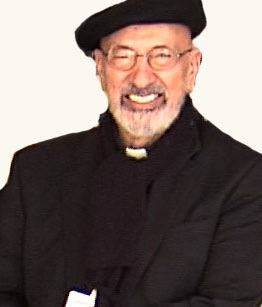 Show 62 ” Building a Kingdom of Love” – Happy Easter!!!! Have You Encountered Jesus?
Show 62 ” Building a Kingdom of Love” – Happy Easter!!!! Have You Encountered Jesus?
Gospel JN 20:1-9
On the first day of the week, Mary of Magdala came to the tomb early in the morning, while it was still dark, and saw the stone removed from the tomb. So she ran and went to Simon Peter and to the other disciple whom Jesus loved, and told them, “They have taken the Lord from the tomb, and we don’t know where they put him.†So Peter and the other disciple went out and came to the tomb. They both ran, but the other disciple ran faster than Peter and arrived at the tomb first; he bent down and saw the burial cloths there, but did not go in. When Simon Peter arrived after him, he went into the tomb and saw the burial cloths there, and the cloth that had covered his head, not with the burial cloths but rolled up in a separate place. Then the other disciple also went in, the one who had arrived at the tomb first, and he saw and believed. For they did not yet understand the Scripture that he had to rise from the dead. Lectionary for Mass for Use in the Dioceses of the United States, second typical edition, Copyright © 2001, 1998, 1997, 1986, 1970 Confraternity of Christian Doctrine;
Msgr. John A. Esseff is a Roman Catholic priest in the Diocese of Scranton. He was ordained on May 30th 1953, by the late Bishop William J. Hafey, D.D. at St. Peter’s Cathedral in Scranton, PA. Msgr. Esseff served a retreat director and confessor to Blessed Mother Teresa. He continues to offer direction and retreats for the sisters of the missionaries of charity around the world. Msgr. Esseff encountered St. Padre Pio, who would become a spiritual father to him. He has lived in areas around the world, serving in the Pontifical missions, a Catholic organization established by Bl. Pope John Paul II to bring the Good News to the world especially to the poor. Msgr. Esseff assisted the founders of the Institute for Priestly Formation and continues to serve as a spiritual director for the Institute. He continues to serve as a retreat leader and director to bishops, priests and sisters and seminarians and other religious leaders around the world.   To obtain a copy of Msgr. Esseff’s book by visiting here  Be sure to visit Msgr. Esseff’s website “Building a Kingdom of Love“
 To obtain a copy of Msgr. Esseff’s book by visiting here  Be sure to visit Msgr. Esseff’s website “Building a Kingdom of Love“
Tags: catholic, catholic podcast, catholic prayer
This entry was posted on Monday, April 21st, 2014 at 12:59 am
You can follow any responses to this entry through the RSS 2.0 feed.
“John saw the empty tomb and believed”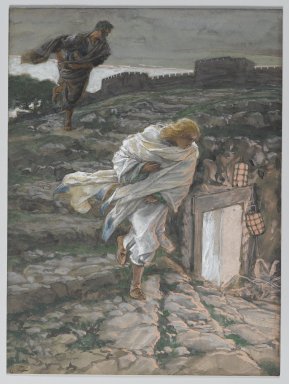
[powerpress]
an excerpt from today’s reflection by Don Schwager:
What was it like for the disciple who had stood at the cross of Jesus and then laid him in a tomb on Good Friday, to come back three days later and discover that the sealed tomb was now empty? John, along with Peter, was the first apostle to reach the tomb of Jesus on Easter Sunday morning. Like Mary Magdalene and the other disciples, John was not ready to see an empty tomb and to hear the angel’s message, Why do you seek the living among the dead (Luke 24:5)? What did John see in the tomb that led him to believe in the resurrection of Jesus? It was certainly not a dead body. The dead body of Jesus would have disproven the resurrection and made his death a tragic conclusion to a glorious career as a great teacher and miracle worker. When John saw the empty tomb he must have recalled Jesus’ prophecy that he would rise again after three days. Through the gift of faith John realized that no tomb on earth could contain the Lord and giver of life. John saw and believed (John 20:8).
John had to first deal with the empty tomb before he could meet the risen Lord later that evening along with the other apostles who had locked themselves in the upper room out of fear of the Jewish authorities (John 20:19-23). John testified as an eye-witness to the life, death, and resurrection of Jesus Christ: What we have seen, heard, and touched we proclaim as the eternal word of life which existed from the beginning (1 John 1:1-4). John bears witness to what has existed from all eternity. This “word of life” is Jesus the word incarnate, but also Jesus as the word announced by the prophets and Jesus the word now preached throughout the Christian church for all ages to come.
One thing is certain, if Jesus had not risen from the dead and appeared to his disciples, we would never have heard of him. Nothing else could have changed sad and despairing men and women into people radiant with joy and courage. The reality of the resurrection is the central fact of the Christian faith. Through the gift of the Holy Spirit, the Lord gives us “eyes of faith” to know him and the power of his resurrection. The greatest joy we can have is to encounter the living Christ and to know him personally as our Lord and Savior. Do you accept the good news of Jesus’ death and resurrection with skeptical doubt and disbelief or with trusting faith and joyful wonderment?
“Lord Jesus Christ, you have triumphed over the grave and you have won for us new life and resurrection power. Give me the eyes of faith to see you in your glory. Help me to draw near to you and to grow in the knowledge of your great love for us and your great victory over sin and death.”
for the full reflection visit : Daily Reading and Meditation
Tags: catholic, catholic podcast, catholic prayer
This entry was posted on Sunday, April 20th, 2014 at 7:49 am
You can follow any responses to this entry through the RSS 2.0 feed.
“It is finished”
[powerpress]
an excerpt from today’s reflection by Don Schwager: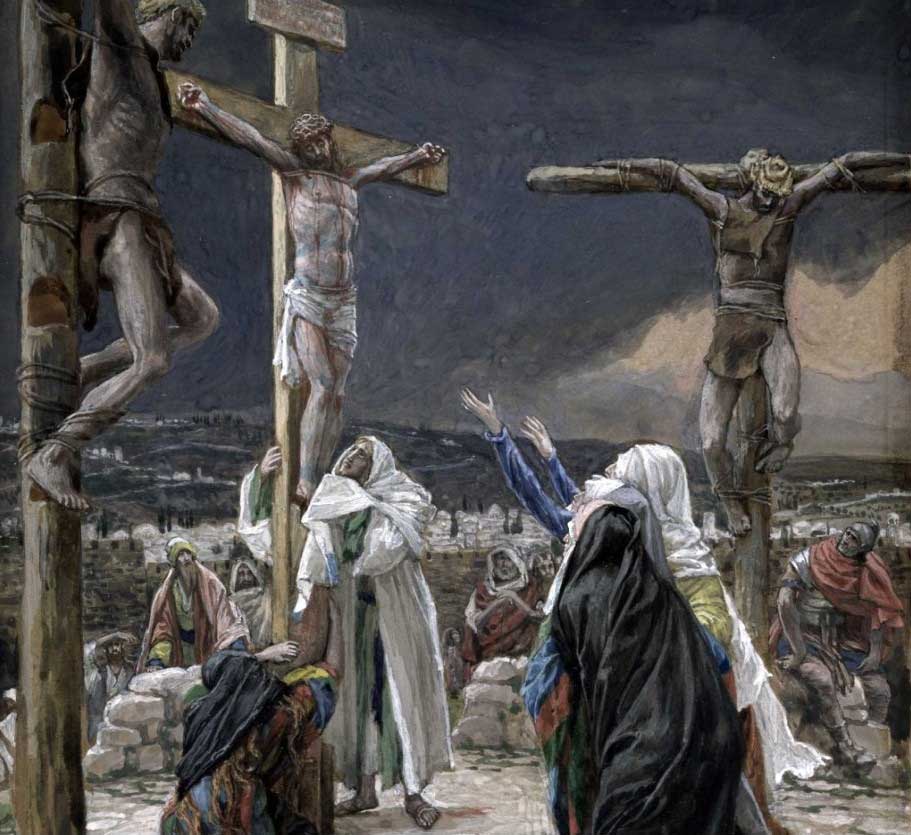
We can find no greater proof of God’s love for us than the willing sacrifice of his Son on the cross. Jesus’ parting words, “It is finished!” express triumph rather than defeat. Jesus bowed his head and gave up his spirit knowing that the strife was now over and the battle was won. Even on the cross Jesus knew the joy of victory. What the Father sent him into the world to do has now been accomplished. Christ offered himself without blemish to God and he put away sin by the sacrifice of himself (see Hebrews 9:24-26). Augustine of Hippo (430-543 A.D) comments on those who stood at the cross of Jesus:
“As they were looking on, so we too gaze on his wounds as he hangs. We see his blood as he dies. We see the price offered by the redeemer, touch the scars of his resurrection. He bows his head, as if to kiss you. His heart is made bare open, as it were, in love to you. His arms are extended that he may embrace you. His whole body is displayed for your redemption. Ponder how great these things are. Let all this be rightly weighed in your mind: as he was once fixed to the cross in every part of his body for you, so he may now be fixed in every part of your soul.” (GMI 248)
In the cross of Christ we see the triumph of Jesus over his enemies – sin, Satan, and death. Christian writers down through the centuries have sung the praises of the Cross of Christ. Paul the Apostle exclaimed, “But far be it from me to glory except in the cross of our Lord Jesus Christ” (Galatians 6:14). Hear what Gregory Nazianzen (329-389 AD), an early church father and bishop of Constantinople, wrote about the triumph of Christ’s exaltation on the cross :
“Many indeed are the wondrous happenings of that time: God hanging from a cross, the sun made dark and again flaming out; for it was fitting that creation should mourn with its creator. The temple veil rent, blood and water flowing from his side: the one as from a man, the other as from what was above man; the earth shaken, the rocks shattered because of the rock; the dead risen to bear witness to the final and universal resurrection of the dead. The happenings at the sepulcher and after the sepulcher, who can fittingly recount them? Yet no one of them can be compared to the miracle of my salvation. A few drops of blood renew the whole world, and do for all men what the rennet does for the milk: joining us and binding us together. (On the Holy Pasch, Oration 45.1)
Rupert of Deutz (1075-1129), a Benedictine theologian and abbot, wrote:
“The cross of Christ is the door to heaven, the key to paradise, the downfall of the devil, the uplifting of mankind, the consolation of our imprisonment, the prize for our freedom.”
The Cross of Christ is the safeguard of our faith, the assurance of our hope, and the throne of love. It is also the sign of God’s mercy and the proof of forgiveness. By his cross Jesus Christ has pardoned us and set us free from the tyranny of sin. He paid the price for us when he made atonement for our sins. The way to peace, joy, and righteousness in the kingdom of God and the way to victory over sin and corruption, fear and defeat, despair and death is through the cross of Jesus Christ. Do you follow the Lord Jesus in his way of the cross with joy, hope, and confidence? “Lord Jesus Christ, by your death on the cross you have won pardon for us and freedom from the tyranny of sin and death. May I live in the joy and freedom of your victory over sin and death.” for the full reflection visit : Daily Reading and Meditation
Tags: catholic, catholic podcast, catholic prayer
This entry was posted on Friday, April 18th, 2014 at 6:21 am
You can follow any responses to this entry through the RSS 2.0 feed.
Episode 24 – The Holy Rule of St. Benedict: A Spiritual Path for Today’s World with Fr. Mauritius Wilde O.S.B., PhD.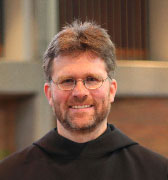
The Monk, the Missionary Spirit and Evangelization
[powerpress]
From the Holy Rule of St. Benedict:
PROLOGUE
Listen, O my son, to the precepts of thy master, and incline the ear of thy heart, and cheerfully receive and faithfully execute the admonitions of thy loving Father, that by the toil of obedience thou mayest return to Him from whom by the sloth of disobedience thou hast gone away.
To thee, therefore, my speech is now directed, who, giving up thine own will, takest up the strong and most excellent arms of obedience, to do battle for Christ the Lord, the true King.
 For more information about the ministry of the the Missionary Benedictines of Christ the King Priory in Schuyler, Nebraska visit here:
For more information about the ministry of the the Missionary Benedictines of Christ the King Priory in Schuyler, Nebraska visit here:
Tags: evangelization, Holy Rule of St. Benedict
This entry was posted on Thursday, April 17th, 2014 at 4:53 pm
You can follow any responses to this entry through the RSS 2.0 feed.
USCCA39  Chapter 30 - Marital Fidelity pt 2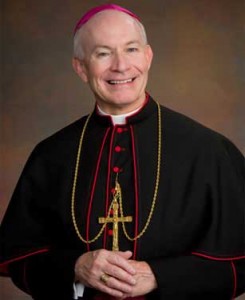
[powerpress]
Archbishop Lucas offers insights on the US Catholic Catechism for Adults Chapter 30:
THREATS TO MARRIAGE The Catechism lists the following behaviors as acts that undermine the purpose and dignity of marriage.
- Adultery is gravely sinful because it violates God’s call to a loving covenant of fidelity between a married man and woman. The act of adultery is an injustice to the wounded spouse. It weakens the institution of marriage and the stability of the family.
- Divorce is contrary to the natural law for it breaks the promise “to which the spouses freely consented to live with each other till death†(CCC, no. 2384). Jesus clearly taught that God’s original plan for marriage excluded divorce (cf. Mt 5:31-32, 9:3-9; Mk 10:9; Lk 16:18; 1 Cor 7:10-11). Marriage is an indissoluble union. Jesus removed the accommodations for divorce that had been tolerated under the Old Law.
- The couple may be allowed a separation in certain cases, such as when adultery is occurring or some type of abuse is present. A separation can be, at times, a prudent action to take. “If civil divorce remains the only possible way of ensuring certain legal rights, the care of the children, or the protection of inheritance, it can be tolerated and does not constitute a moral offense†(CCC, no. 2383). In such cases, a Catholic can still receive the Sacraments.
- Cohabitation (an unmarried couple living together) involves the serious sin of fornication. It does not conform to God’s plan for marriage and is always wrong and objectively sinful. Cohabitation does not guarantee successful married life, as has been revealed in the painful experience of many, and is detrimental to future commitment.
- Polygamy (having more than one spouse at a time) violates the understanding of the equal dignity that a man and woman bring to marriage and contradicts the unitive purpose of marriage.
- Attempts to justify same-sex unions or relationships or to give them matrimonial status also contradict God’s plan—as revealed from the beginning both in nature and in Revelation—for marriage to be a lifelong union of a man and a woman.
United States Conference of Catholic Bishops (USCCB) (2012-04-02). United States Catholic Catechism for Adults (Kindle Locations 5936-5951). United States Conference of Catholic Bishops (USCCB). Kindle Edition.
The Most Reverend George J. Lucas leads the Archdiocese of Omaha.Â
For other episodes in the visit our Archbishop George Lucas page
This programs is based on:
More information can be found here.
We wish to thank the USCCB for the permissions granted for use of  relevant material used in this series.
[ezcc]
Tags: Catholic Catechism, George Lucas, United States Catholic Catechism
This entry was posted on Thursday, April 17th, 2014 at 4:17 pm
You can follow any responses to this entry through the RSS 2.0 feed.
FG#14 – The Way of Trust and Love Ep 3Â – Fountains of Grace: reflections on contemporary spiritual classics with Donna Garrett Join host Donna Garrett, with Fr. James Perez, LC, as they discuss the spiritual classic “The Way of Trust and Love: A Retreat Guided By St. Therese of Lisieux” by Fr. Jacques Philippe. [powerpress] Discussed in this episode, among other topics, from “The Way of Trust and Love”
Join host Donna Garrett, with Fr. James Perez, LC, as they discuss the spiritual classic “The Way of Trust and Love: A Retreat Guided By St. Therese of Lisieux” by Fr. Jacques Philippe. [powerpress] Discussed in this episode, among other topics, from “The Way of Trust and Love”
We began to look more deeply into humility in the previous chapter. I think a good definition of humility may be this: being in the right relation to ourselves, which enables us to be in the right relation to God and to other people; relating to ourselves according to the truth of what and how we are. One of its essential aspects , as we have seen, is peacefully accepting our weakness and inner poverty.
If we accept ourselves as we are, we also accept God’s love for us. But if we reject ourselves, if we despise ourselves, we shut ourselves off from the love God has for us, we deny that love. If we accept ourselves in our weakness, our limitations, it will also be easier for us to accept other people. Often, quite simply, we can’t get along with other people because we can’t get along with ourselves . We have all experienced this at some point. Sometimes we are unhappy with ourselves because we’ve made mistakes or fallen into a fault that humiliates us, so we are really annoyed with ourselves. That makes us bad-tempered and even aggressive with others. What does this mean? Just that we make others pay for our difficulty in accepting our own inner poverty. Not accepting our limitations, we take it out on other people … This reaction is very common, and obviously unfair and contrary to the truth. Most of our conflicts others are nothing more than a projection of the conflicts we are having with ourselves. The opposite is also true. The more we accept ourselves as we are and are reconciled to our own weakness, the more we can accept other people and love them as they are.
For other episodes in the this series click here “Fountains of Grace w/Donna Garrett“
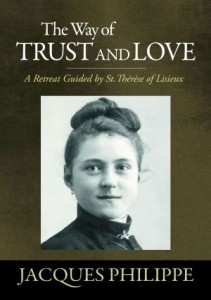 You can find “The Way of Trust and Love” here
You can find “The Way of Trust and Love” here
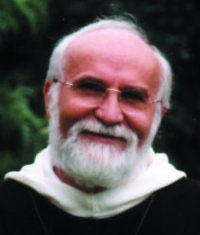
Fr. Jacques Philippe
Tags: catholic, catholic podcast, catholic prayer
This entry was posted on Thursday, April 17th, 2014 at 3:57 pm
You can follow any responses to this entry through the RSS 2.0 feed.
“How much more will your Father who is in heaven give good things to those who ask him!”
[powerpress]
an excerpt from today’s reflection by Don Schwager: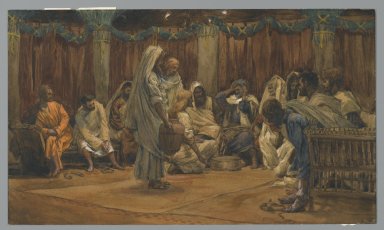
Does your love waver when you encounter bitter disappointments and injury from others? As Jesus’ hour of humiliation draws near he reveals to his disciples the supreme humility which shaped the love he had for them. He stoops to perform a menial task reserved for servants – the washing of smelly, dirty feet. In stooping to serve his disciples Jesus knew he would be betrayed by one of them and that the rest would abandon him through disloyalty. Such knowledge could have easily led to bitterness or hatred. Jesus met the injury of betrayal and disloyalty with the greatest humility and supreme love.
Jesus loved his disciples to the very end, even when they failed him and forsook him. The Lord loves each of us unconditionally. His love has power to set us free to serve others with Christ-like compassion and humility. Does the love of Christ rule in your heart, thoughts, intentions and actions?
Saint Augustine of Hippo in his sermon for this day, wrote:
“He had the power of laying down his life; we by contrast cannot choose the length of our lives, and we die even if it is against our will. He, by dying, destroyed death in himself; we are freed from death only in his death. His body did not see corruption; our body will see corruption and only then be clothed through him in incorruption at the end of the world. He needed no help from us in saving us; without him we can do nothing. He gave himself to us as the vine to the branches; apart from him we cannot have life.Finally, even if brothers die for brothers, yet no martyr by shedding his blood brings forgiveness for the sins of his brothers, as Christ brought forgiveness to us. In this he gave us, not an example to imitate but a reason for rejoicing. Inasmuch, then, as they shed their blood for their brothers, the martyrs provided “the same kind of meal” as they had received at the Lord’s table. Let us then love one another as Christ also loved us and gave himself up for us.”
“Lord Jesus, your love conquers all and never fails. Help me to love others freely, with heart-felt compassion , kindness and goodness. Where there is injury, may I sow peace rather than strife.”
for the full reflection visit : Daily Reading and Meditation
Tags: catholic, catholic podcast, catholic prayer
This entry was posted on Thursday, April 17th, 2014 at 11:14 am
You can follow any responses to this entry through the RSS 2.0 feed.
SP#7Â The School of Prayer: Foundations for the New Evangelization
Fr. Scott Traynor talks about the importance of “spiritual friendship or companionship”.  He discusses “heart-sharing” between spouses, but also in friendship with others.  He give us models on how this can look.  Fr. Scott also helps us to understand the difference between ordinary relationships and the unique gift of the “spiritual friendship”.  What is a healthy sharing relationship and what are the signs of unhealthy ones which we may want to avoid.
In Father Scott Traynor’s book, Blessed John Paul II’s memorable call to make of the parish a school of prayer takes on flesh and becomes concretely attainable. Those you read these faith-filled pages will find renewed desire to create such parishes and a clear road-map toward this goal.
–Father Timothy Gallagher, OMV
Father Scott Traynor received his STB from the Pontifical Gregorian University and his JCL from Catholic University of America. He has been an instructor and spiritual director for many of the programs at the Institute for Priestly Formation.
Father Traynor is a retreat master and spiritual director who has travelled the country as a speaker at various conferences, diocesan gatherings and national conferences.. He is especially sought after to present on the topics of prayer, discernment and priestly identity and mission.
He serves the Rector of the St. John Vianney Theological Seminary in Denver Colorado.
Tags: catholic, catholic podcast, catholic prayer
This entry was posted on Wednesday, April 16th, 2014 at 4:36 pm
You can follow any responses to this entry through the RSS 2.0 feed.
Episode 9Â -The Way of Mystery: The Eucharist and Moral Living 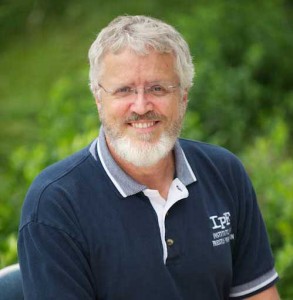
The Liturgy of the Eucharist part 1 : The offertory and the priesthood…what is the role of the priest in the sacrifice of the Mass and what are some of the challenges faced by the priest today.
[powerpress]
For more episodes in “The Way of Mystery” Series click here
Deacon James Keating, PhD, the director of Theological Formation for the Institute for Priestly Formation, located at Creighton University, in Omaha, is making available to â€Discerning Hearts†and all who listen, his series of programs entitled “The Way of Mysteryâ€.
 The Vatican II documents remind us that the spiritual journey is not made in a vacuum, that God has chosen to save us, not individually, but as The People of God. The Eucharist must help Christians to make their choices by discerning out of Christ’s paschal mystery. For this process to take place, however, Christians must first understand how the Eucharist puts them in touch with Christ’s passion, death, and resurrection, and what concrete implications being in touch with this mystery has for their daily lives.
The Vatican II documents remind us that the spiritual journey is not made in a vacuum, that God has chosen to save us, not individually, but as The People of God. The Eucharist must help Christians to make their choices by discerning out of Christ’s paschal mystery. For this process to take place, however, Christians must first understand how the Eucharist puts them in touch with Christ’s passion, death, and resurrection, and what concrete implications being in touch with this mystery has for their daily lives.
For more information on the “Institute of Priestly Formation†and for other material available by Deacon Keating, just click here
Don’t forget to pickup a copy of “Communion with Christ†, it is one of the best audio sets on prayer…ever!
Check out Deacon Keating’s “Discerning Heart†page
Tags: Deacon Keating, james keating, Liturgy of the Eucharist, theological formation
This entry was posted on Wednesday, April 16th, 2014 at 4:17 pm
You can follow any responses to this entry through the RSS 2.0 feed.
In”The Seven Big Myths about Marriage: What Science, Faith and Philosophy Teach Us about Love and Happiness”, Dr. Christopher Kaczor, 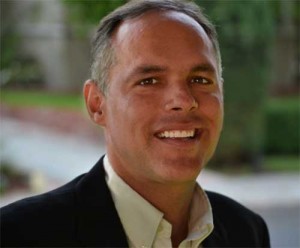 along with his wife Jennifer, shines an important light of truth on one of the most important issues of our day.  Beginning with basic foundational principals and understandings, Dr. Kaczor rationally examines key issues in the marriage debate and carefully, and quite thoroughly, debunks the leading “myths” about marriage.  An excellent resource and HIGHLY recommended for all who care about and engage in the discussions on marriage.
along with his wife Jennifer, shines an important light of truth on one of the most important issues of our day.  Beginning with basic foundational principals and understandings, Dr. Kaczor rationally examines key issues in the marriage debate and carefully, and quite thoroughly, debunks the leading “myths” about marriage.  An excellent resource and HIGHLY recommended for all who care about and engage in the discussions on marriage.
[powerpress]
You can find the book here
If I were a pastor, I would make this book required reading for engaged couples in all my marriage classes. —Peter Kreeft, Ph.D., Author, Jacob s Ladder: Ten Steps to Truth
The media portrayals of the public debates over marriage and its meaning often generate more heat than light. In this carefully crafted and accessible book, Professor Kaczor provides just the sort of illumination that is absent from those portrayals. I cannot think of a better book that offers such a clear and winsome account of marriage and its meaning, and what that tells us about human dignity and happiness. —Francis J. Beckwith, Professor of Philosophy, Baylor University
‘Don’t miss:
IP#182 Dr. Christopher Kaczor – The Seven Big Myths About the Catholic Church on Inside the Pages
and
“Life Issues” ….In Conversation with Dr. Christopher Kaczor
Tags: catholic, catholic podcast, catholic prayer
This entry was posted on Wednesday, April 16th, 2014 at 1:47 pm
You can follow any responses to this entry through the RSS 2.0 feed.
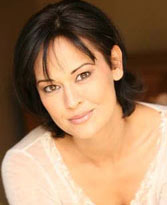
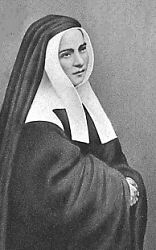 The best movie on the life of St. Bernadette is actually a pair of films starring Sydney Penny and distributed by Ignatius Press: “Bernadette” and “The Passion of Bernadette”. Sydney does an extraordinary job capturing the feverent love, joy and enthusiasm that encapsulates the heart of St. Bernadette. They are a joy to watch…our little saint is no sad victim, but instead a tremendous witness to the virtuous life and the grace of God.
The best movie on the life of St. Bernadette is actually a pair of films starring Sydney Penny and distributed by Ignatius Press: “Bernadette” and “The Passion of Bernadette”. Sydney does an extraordinary job capturing the feverent love, joy and enthusiasm that encapsulates the heart of St. Bernadette. They are a joy to watch…our little saint is no sad victim, but instead a tremendous witness to the virtuous life and the grace of God.
Tags: catholic, catholic podcast, catholic prayer
This entry was posted on Wednesday, April 16th, 2014 at 12:46 am
You can follow any responses to this entry through the RSS 2.0 feed.
 One of the finest translations of St. Bernadette’s writings (her diary, etc) has been done by Patricia McEachern. The book is called “A Holy Life: The Writings of St. Bernadette of Lourdes”. It’s just beautiful. It reveals so much about this holy soul, St. Bernadette! Her “little way” was much like another holy soul, St. Therese…who knew these daughters of France would have so much in common. But then again, should we really be surprised?
One of the finest translations of St. Bernadette’s writings (her diary, etc) has been done by Patricia McEachern. The book is called “A Holy Life: The Writings of St. Bernadette of Lourdes”. It’s just beautiful. It reveals so much about this holy soul, St. Bernadette! Her “little way” was much like another holy soul, St. Therese…who knew these daughters of France would have so much in common. But then again, should we really be surprised?
[powerpress]
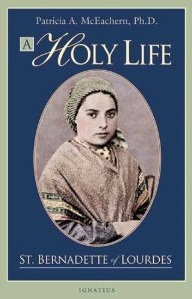 You can find the book here
You can find the book here
Tags: Patricia McEachern, st. bernadette, St. Bernadette of Lourdes
This entry was posted on Wednesday, April 16th, 2014 at 12:45 am
You can follow any responses to this entry through the RSS 2.0 feed.
The tragedy of the betrayal
[powerpress]
an excerpt from today’s reflection by Don Schwager: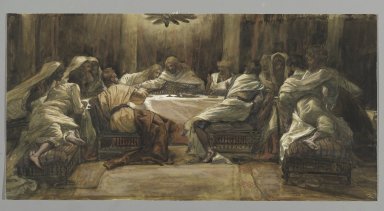
Why did Judas betray his Master? Was his treachery motivated by greed, bitter disappointment with Jesus, or hatred because of disillusionment? It may be that Judas never intended for his Master to die. Maybe he thought Jesus was proceeding too slowly and not acting aggressively enough in setting up his messianic kingdom. Perhaps Judas wanted to force Jesus’ hand by compelling him to act. Nonetheless, his tragedy was his refusal to accept Jesus as he was.
Origen, a 3rd century bible scholar and church father, comments on Judas’ betrayal: “Let us consider what Judas said to the Jewish priests: What will you give me if I hand him over to you? He was willing to take money in exchange for handing over the Word of God. They do the same thing who accept sensual or worldly goods in exchange for handing over and casting out from their souls the Savior and Word of truth who came to dwell with them. Indeed, it would be fitting to apply Judas’s example to all who show contempt for the Word of God and betray him, as it were, by committing sin for the sake of money or for any selfish motive. People who behave in this way appear openly to be calling out to the powers of the enemy who offer worldly gain in return for the sin of betraying God’s Word, saying, What will you give me if I hand him over to you? And they gave him thirty pieces of silver. The number of coins they gave Judas was equivalent to the number of years the Savior had sojourned in this world. For at the age of thirty, he was baptized and began to preach the gospel, like Joseph was thirty years old when he began to gather grain for his brothers (Genesis 41:46). Just as at that time the grain was prepared by God for the sons of Israel but given also to the Egyptians, so also the gospel was prepared for the saints but preached also to the unfaithful and wicked.†[Commentary on Matthew 78.]
Jesus knew beforehand what would befall him. As Jesus ate the passover meal with his twelve apostles he put them under trial and suspicion (one of you will betray me) to teach them to examine themselves rightly, lest they be highminded and think themselves more strong than they were. We, also must examine ourselves in the light of God’s truth and grace and ask him to strengthen us in faith, hope, and love that we may not fail him or forsake him when we are tempted. Do you pray with confidence in the words Jesus gave us to pray: Do not lead us into temptation, but deliver us from evil (Matthew 6:13)?
“God our Father, we are exceedingly frail and indisposed to every virtuous and gallant undertaking. Strengthen our weakness, we beseech you, that we may do valiantly in this spiritual war; help us against our own negligence and cowardice, and defend us from the treachery of our unfaithful hearts; for Jesus Christ’s sake.” (Prayer of Thomas a Kempis)
for the full reflection visit : Daily Reading and Meditation
Tags: catholic, catholic podcast, catholic prayer
This entry was posted on Wednesday, April 16th, 2014 at 12:09 am
You can follow any responses to this entry through the RSS 2.0 feed.
Episode 4 The Daily Prayer of Discernment: The Ignatian Wisdom of the Examen Prayer with Fr. Timothy Gallagher.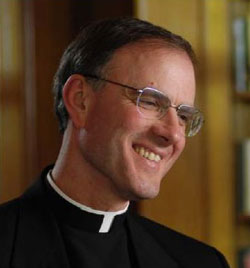
 The third step – REVIEW – this is point where the “Discernment of Spirits – the 14 Rules” and the Examen intersect.  With  God, we review the day. We look for the stirrings in our hearts and the thoughts that God has given us this day. We also look for those that have not been of God. IWe review our choices in response to both, and throughout the day in general.
[powerpress]
As outlined from the Spiritual Exercises of St. Ignatius of Loyola
(translated from the autograph by Fr. E. Mullan, S.J. Â 1909Â in the public domain)
METHOD FOR MAKING THE GENERAL EXAMEN
It contains in it five Points.First Point. The first Point is to give thanks to God our Lord for the benefits received.
Second Point. The second, to ask grace to know our sins and cast them out.
Third Point. The third, to ask account of our soul from the hour that we rose up to the present Examen, hour by hour, or period by period: and first as to thoughts, and then as to words, and then as to acts, in the same order as was mentioned in the Particular Examen.
Fourth Point. The fourth, to ask pardon of God our Lord for the faults.
Fifth Point. The fifth, to purpose amendment with His grace.OUR FATHER.
Father Timothy M. Gallagher, O.M.V., was ordained in 1979 as a member of the Oblates of the Virgin Mary, a religious community dedicated to retreats and spiritual formation according to the Spiritual Exercises of St. Ignatius. Â Fr. Gallagher is featured on the EWTN series “Living the Discerning Life: Â The Spiritual Teachings of St. Ignatius of Loyola”. Â For more information on books and audio available for purchase from Fr. Timothy Gallagher check out his website: www.frtimothygallagher.org
For the other episodes in this series check out
Fr. Timothy Gallagher’s “Discerning Hearts†page
Tags: discernment of spirits, Timothy Gallagher
This entry was posted on Monday, April 14th, 2014 at 4:43 pm
You can follow any responses to this entry through the RSS 2.0 feed.



